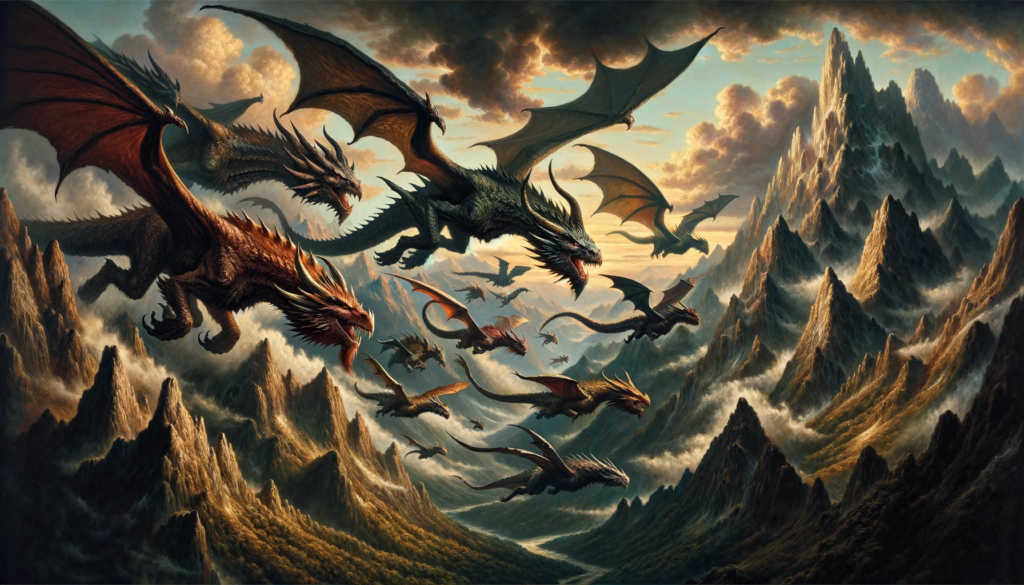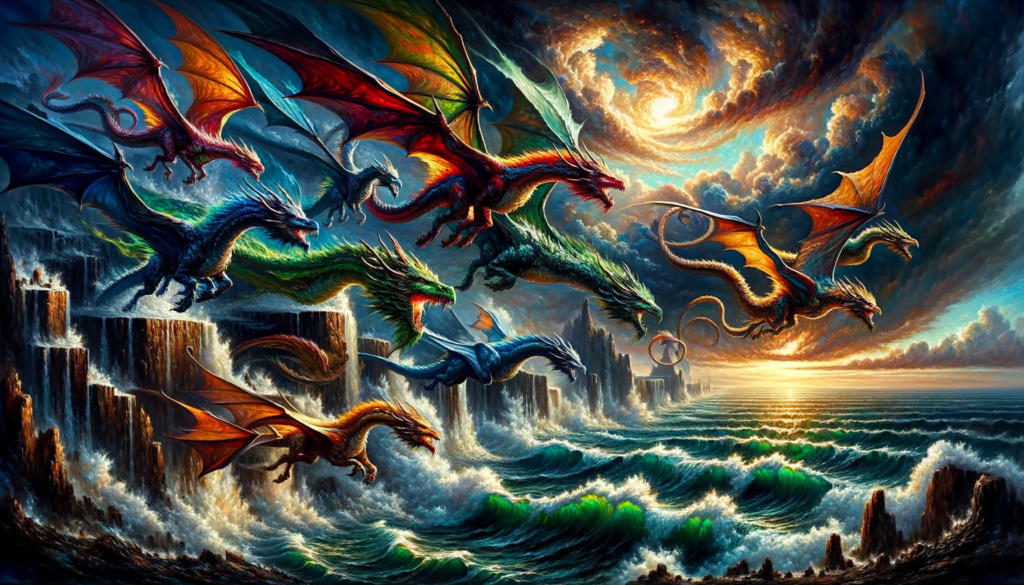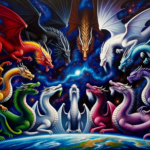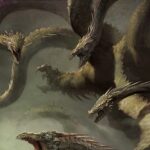In the rich tapestry of the English language, collective nouns hold a particular fascination for their creativity and evocative power. These terms often hark back to medieval England, where they emerged as a means of describing groups of animals, people, or things in a specific, often whimsically illustrative manner. Among the most majestic of these is the collective noun for dragons: “a flight of dragons”. This term not only captures the grandeur of these mythical creatures but also resonates with the collective imagination of folklore and fantasy enthusiasts across the globe.
The Origins of “A Flight of Dragons”
The term “a flight of dragons” is steeped in the lore and language of yesteryear. Dragons, throughout mythology, have been synonymous with power, freedom, and a fearsome presence in the skies. Thus, the term “flight” aptly embodies the image of these creatures soaring through the heavens, their formidable wings outstretched, casting shadows over awe-struck onlookers below.
Collective nouns often arose from the pastimes of the nobility, particularly from the hunt and related courtly life, which included not only real animals but also mythical creatures. They were immortalised in texts such as “The Book of Saint Albans”, published in 1486, which listed terms of venery, or hunting, and it is from this milieu that “a flight of dragons” likely takes its heritage.
The Linguistic Beauty of Collective Nouns
Collective nouns are a testament to the poetic nature of the English language. They reflect a time when English speakers took delight in the playfulness and richness of their language, creating evocative and often humorous terms to describe groups of entities. Just as a group of crows became known as “a murder” and a gathering of owls as “a parliament”, dragons too received a term that imparted a sense of their essence and communal behaviour.
The choice of the word “flight” for dragons is particularly telling. It suggests not only the physical act of flying but also an escape or a journey. In the context of dragons, it evokes images of these magnificent beasts embarking on epic voyages, or perhaps fleeing from the legendary heroes of yore. It’s a term that incites wonder and conjures up scenes of fantastical adventures.

Dragons in Mythology and Culture
Dragons have been a staple of mythology across various cultures. In European legend, they often represent chaos and danger, typically portrayed as adversaries to be overcome by valiant knights. In contrast, Eastern cultures, particularly in China, revere dragons as symbols of power, strength, and good fortune. The interpretation of dragons and thus the mental image of “a flight of dragons” can vary widely depending on cultural context.
This duality of fear and reverence for dragons is beautifully encapsulated in the collective noun. A “flight” can be viewed with dread as a formidable adversary or with awe as a magnificent spectacle of nature and myth intertwined.
The Modern Appeal of “A Flight of Dragons”
Today, the term “a flight of dragons” resonates well beyond its etymological roots into the realms of fantasy literature, film, and gaming. Modern works have embraced and perpetuated the mythos of dragons, cementing their place in popular culture. From the dragons of J.R.R. Tolkien’s Middle-earth to those in George R.R. Martin’s Westeros, these creatures continue to captivate the imagination.
In these narratives, dragons often travel in groups, and the vision of “a flight of dragons” is as breathtaking and awe-inspiring as it would have been to the minds of medieval folk. Fantasy enthusiasts revel in the idea, crafting their own lore and legends that pay homage to this age-old collective noun.
Conclusion
“A flight of dragons” is a collective noun that embodies the splendour and mystery of one of fiction’s most beloved creatures. It is a linguistic bridge between the past and the present, a term that has flown through the centuries, much like the dragons it describes. In its essence, it is a celebration of language, imagination, and the enduring human love for storytelling. As long as dragons continue to capture our collective imaginations, “a flight of dragons” will continue to soar in the lexicon of English, as timeless and evocative as the creatures it represents.
For more great Dragon content please subscribe to our YouTube Channel or follow the Everything Dragon Instagram




